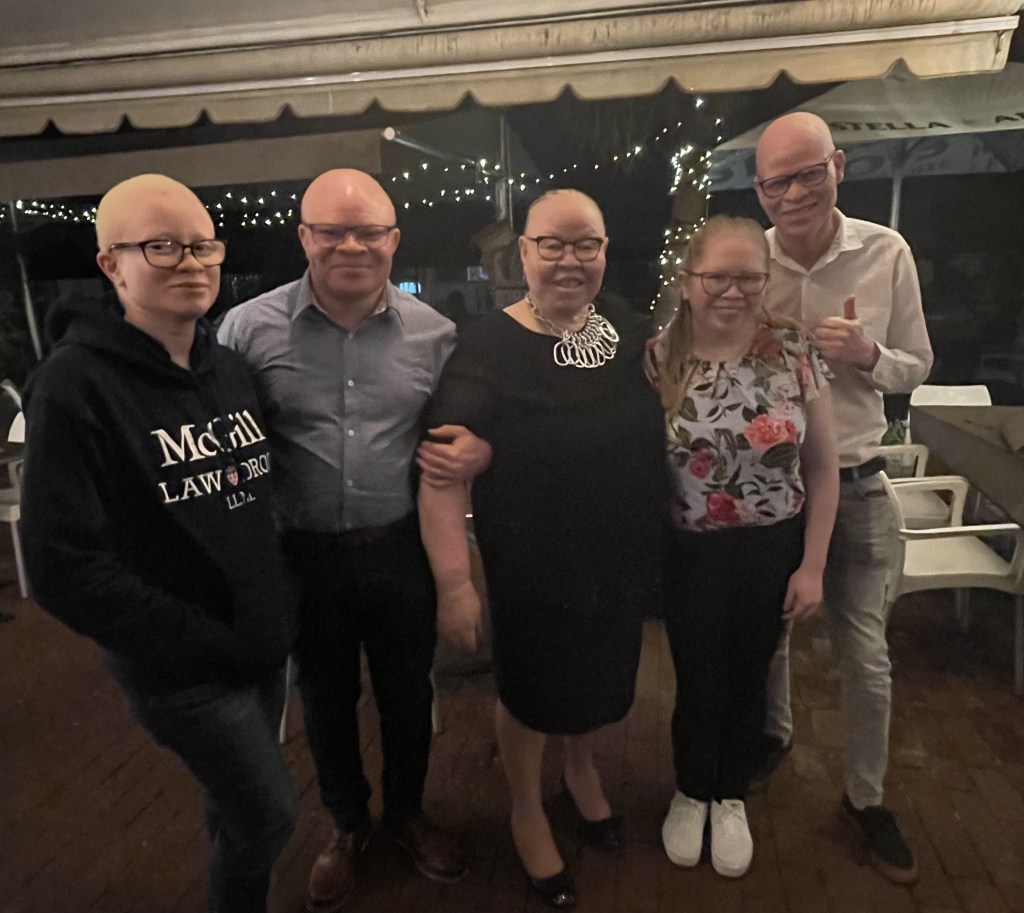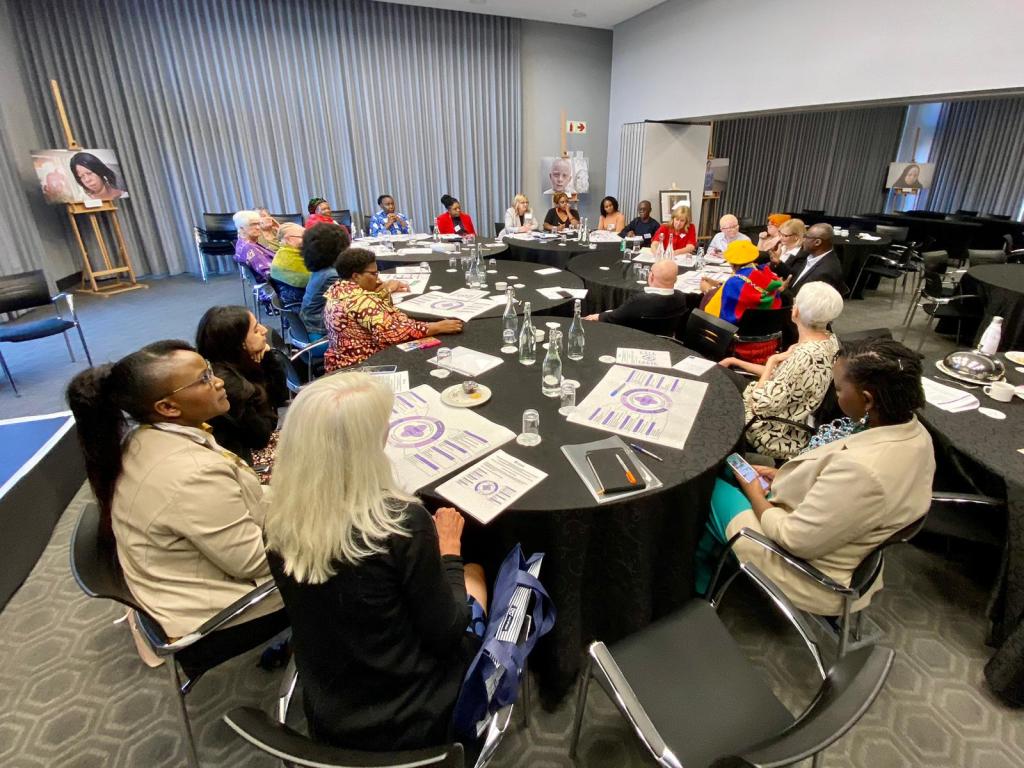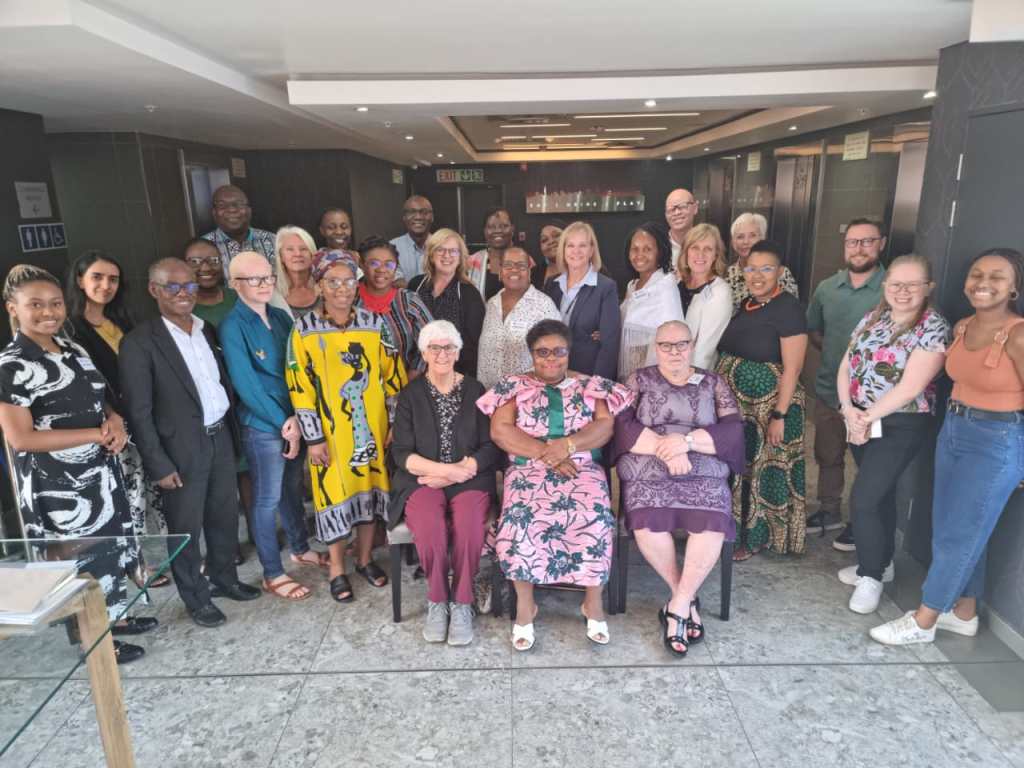
As a network of scholars and advocates from multiple disciplinary fields and various sectors, we are bringing our knowledges and skills together to address a complex problematic, that of protecting and promoting the human rights of mothers impacted by albinism. This challenge cannot be solved by any one disciplinary stance, methodological approach or practical skillset. Our research-advocacy-policy network is proving itself as robust and collaborative, innovative and analytic, as we witnessed during our recent Engagement Workshop and Public Forum on mothering and albinism. In this blog, I explore the strengths (and some potential weaknesses) of our interdisciplinary, intersectoral network as experienced these recent days in Pretoria.
From the beginning of our work in 2016, we have sought to keep the voices of persons with albinism at the centre of our work.

- Nothing about us without us: learning from and with those closest to the phenomenon. From the beginning of our work in 2016, we have sought to keep the voices of persons with albinism at the centre of our work. We are not studying “about” PWA, but rather learning from, with, and alongside. We honour our team members with albinism: Ikponwosa Ero, Nomasonto Mazibuko, Elvis Imafidon, Perpetua Senkoro, Mpho Tjope, Meghann Buyco, and Kwame Daklo. At the Public Forum, mothers who are featured in our film (Tshego Keitsemore, Caroline Dlamini, Lerato Sengane, and Shoki Kekanaand) and the mothers who shared on a panel deepened our understanding of their experiences (we are grateful for Tshego Keitsemore, Lorraine Tshuma, and Thambisile Madlala). The joyful presence of 2-year-old (a child born with albinism) with her parents Caroline Dlamini and David Sithole for two days was a tangible portrayal of thriving families when they have support and education. The Public Forum was co-hosted by Puleng Molebatsi, film producer and media presence (and a mother with albinism). A gallery of photographs and a large painting featuring persons with albinism (artist credit: Athenkosi Kwinana) reminded us of the reason for gathering. Patrick Wadula, chairperson of the South Africa National Albinism Taskforce, responded to the Report and Film. Persons with albinism had a strong presence at the Public Forum.
- Benefitting from various disciplines as we cross disciplinary boundaries: We benefitted from each other’s short papers that foregrounded health sciences (genetic counselling, vision care, respectful maternity care), human rights (disability rights), political sciences, philosophy and gender studies. These papers deepened appreciation of the expertise of our team. As three examples:
- Dr. Dianah Msipa (Manager Disability Rights Unit, Centre for Human Rights University of Pretoria) provided a concrete explanation of which human rights instruments can be appealed to support PWA, explaining that the African Disability Protocol provides a robust framework that builds on the Convention of the Rights of Persons with Disabilities (CRPD).
- Dr. Boateng Wiafe, an ophthalmologist (Ghana), explained the physiology of the vision impairments that stem from albinism. A key message for our team was the crucial period through childhood to the age of 15 when vision is to be protected.
- Dr. Barbara Astle (Professor of Nursing) gave an overview of Planetary Health as an emerging field of study and the relevance this has for persons with albinism. Just this week, the UN Independent Expert on the enjoyment of human rights by persons with albinism, Muluka-Anne Miti-Drummond delivered a report on climate change and persons with albinism (A/78/167) to the 78th session of the General Assembly. (See our team publication on the global impact of climate change on persons with albinism, Astle et al., 2023).

- Intersectoral integration of scientific with practical knowledges: Intersectoral collaboration between advocates and scholars brings very practical knowledge to the table. For example, access to sunscreen for PWA is repeatedly mentioned in policy recommendations, namely that it be free, that it be good quality, and that it be accessible. Perpetua Senkoro (TZ) and Nomasonto Mazibuko (SA) advised that sunscreen not be seen as the “magic bullet”, but rather that there be more emphasis put to sun protection through protective clothing and simply staying out of the sun. On this theme, Public Forum attendees were each given a bright yellow umbrella logo-ed with Mothering and Albinism, to contribute to sun protection.
- Honouring traditional forms of knowledge: As a team, we visited the Traditional Healing Botanical Garden of Dr. Mabena, an Indigenous (traditional) healer. A significant tension in albinism research relates on the one hand to honouring Indigenous knowledges in the spirit of decolonization in the African context and, on the other hand, the association of traditional healers with harmful practices related to accusations of witchcraft and ritual attacks (e.g., the use of body parts of PWA to make good luck potions). Our team asked Dr. Mabena about his views on how a more positive association (reputation) might be formed, and how he explains the causation of albinism. Dr. Mabena pointed to the regulated practice of traditional healers in South Africa, and that traditional healers have a role in providing correct information about the genetic cause of albinism. (See our team publication on the UN resolution on witchcraft, Reimer-Kirkham et al., 2022).
- Integrative knowledge translation: Our funding agency, Canadian Institutes of Health Research (Grant #481405), encourages knowledge users (such as patients, policy makers, and practitioners) to be included on teams from the beginning of a project to inform the research questions and design. In Year One of our new Birthing Stories project, we are conducting a Participatory Systematic Review with our knowledge users. During our Workshop, it was invaluable to share a draft framework that depicts the state of the science (i.e., published research) regarding the perinatal experience surrounding the birth of an infant with albinism, and to hear from various vantage points what resonated and what might be missing. This exercise constituted a validation process as we jotted notes on large poster-sized copies of the framework.

For the researchers, few of us started out as albinism researchers, but we bring the knowledge and skills from our respective fields to contribute to the complex questions asked by this study. For the advocates, we bring firsthand experience to the academic table, to push for practical implications and deep listening to those who can well inform the project.
There can be challenges and even drawbacks to interdisciplinary, intersectoral work: research is a slow process that takes time in reaching conclusions, compared to the urgencies that come with advocacy. Interdisciplinary work carries the risk of superficiality, potentially missing out on intensive, thick investigations (Cooke et al., 2020). We also risk not giving sufficient recognition to this expertise. Researchers may not be appreciated for the time and dedication they give to the intellectual space of knowledge generation. Similarly, advocates’ real-life knowledge may be overlooked and their time not well compensated.
Having three days in Pretoria to gather from South Africa, Ghana, Tanzania, Zambia, England, and Canada afforded us opportunity to build relationships early in the Birthing Stories project.
Our South African team invited us into the UBUNTU way of working together, where we listened with respect and appealed to what we share in common.
Informal conversations on the shuttle, at the breakfast table, and over coffee – these are invaluable coming out of the pandemic. In many ways, our research-advocacy-policy network models the best of intersectoral, interdisciplinary work.
For a reel capturing some of the highlights of the Engagement Workshop, see here.

References
Astle, B., Buyco, M., Ero, I., & Reimer-Kirkham, S. (2023). Global impact of climate change on persons with albinism: A human rights issue. The Journal of Climate Change and Health, 9, 100190.
Cooke, S. J., Nguyen, V. M., Anastakis, D., Scott, S. D., Turetsky, M. R., Amirfazli, A., … & Woolford, A. (2020). Diverse perspectives on interdisciplinarity from Members of the College of the Royal Society of Canada. Facets, 5(1), 138-165. https://doi.org/10.1016/j.joclim.2022.100190
Reimer-Kirkham S, Ero I, Astle B, Buyco M, Strobell E. (2022). UN resolution on the elimination of harmful practices and the protection of human rights of mothers impacted by albinism. Journal of Global Health, 12:03029. https://jogh.org/2022/jogh-12-03029
United Nations General Assembly. (2023). Thematic report: Impact of climate change on persons with albinism (A/78/167). https://undocs.org/Home/Mobile?FinalSymbol=A%2F78%2F167&Language=E&DeviceType=Desktop&LangRequested=False
CITE BLOG AS: Reimer-Kirkham, S. (2023). The strength of our research-advocacy-policy network in action: Reflections on our Engagement Workshop in Pretoria, October 2-4, 2023. Unpublished blog, Trinity Western University, Canada. Available at www.motheringandalbinism.com

NICE PROJECT
BE BLESSED
LikeLike